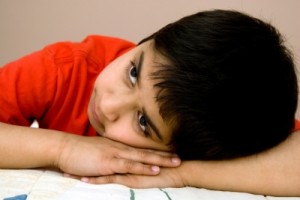Marital Infidelity Affects Children
The reasons for your divorce or break up are between you and your spouse, but even if you try to keep infidelity under wraps and your divorce is not front page headlines, it still has an impact on your kids. Even if you don’t tell your kids about infidelity, they are likely to find out if they are old enough to understand, simply by overhearing arguments between parents or conversations you have with other people. Kids react in individual ways, but the following reactions are almost universal.
Embarrassment
Kids whose parents are unfaithful often feel deeply shamed by the situation. A parent has done something that deeply hurt the other parent, and which is considered a no-no by society. Kids are afraid people will talk about the situation and that by being part of the family your child will be tainted by association.
Confusion
Kids are expected to follow the rules, so why can parents break them? That is a question kids ask themselves or even you, as they try to work their way through the situation. It’s not uncommon for children to react by testing the rules themselves to see what they can get away with.
Disgust
Anything that has to do with parents and sex is just gross as far as your child is concerned and a situation that calls attention to the fact that a parent is actually having sex is beyond what any kid wants to think about.
Anger
A common reaction is anger – often at both parents. The cheating parent is easy to blame because he or she took action that ended the marriage and hurt everyone involved in the situation. Kids will frequently freeze this parent out or rage at him or her. It’s also not unusual to blame the non-cheating parent, believing that he or she could have done something that would have prevented the cheating, like being more loving, working harder to please the other spouse, etc.
Distrustfulness
When a parent betrays the entire family, children frequently experience doubt that they can trust anyone ever again. If a parent broke trust with the family, who can you rely on? Children will experience insecurity in all of their relationships. Teens may find it hard to trust members of the opposite sex and say that love is not worth the risk.
How to Help
You can’t undo what has happened, but you can get your child into therapy to help work through the issues. Be available to listen to your child. Let him or her talk and just listen. It’s also important that both parents talk about the situation, as hard as that may be. The cheating parent may be met with silence or ignored, but it is important to apologize for the hurt that has been caused and offer to talk about it with the child in therapy. The non-cheating parent is often in a better situation to have a conversation with the child. It’s hard to do, but the best course is to emphasize that this happened between the parents and does not affect the relationship and the love between the cheating parent and the child. As with all divorces, it takes time for your child to accept what has happened and move forward. Being supportive through this process is the best thing you can do.





It’s about time seomone wrote about this.